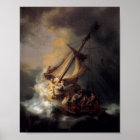 Although in many ways Valentine's Day, which we remembered yesterday, along with Ash Wednesday, has become (or, I might say, degenerated into) a Hallmark holiday, it actually has a measure of legitimate historical origin. Its name comes from St. Valentine, one of many martyrs in the early years of the Church. Subsequently, as Rome faded into history and the Middle Ages began, it morphed into a day associated with love and romance. Moreover, despite the way that various retailers use Valentine's Day to increase sales, doing their best to entice lovers, particularly men, to spend more disposable income than they would otherwise to please their loved one, it's still a good day. What harm can come from thinking about love?
Although in many ways Valentine's Day, which we remembered yesterday, along with Ash Wednesday, has become (or, I might say, degenerated into) a Hallmark holiday, it actually has a measure of legitimate historical origin. Its name comes from St. Valentine, one of many martyrs in the early years of the Church. Subsequently, as Rome faded into history and the Middle Ages began, it morphed into a day associated with love and romance. Moreover, despite the way that various retailers use Valentine's Day to increase sales, doing their best to entice lovers, particularly men, to spend more disposable income than they would otherwise to please their loved one, it's still a good day. What harm can come from thinking about love?
Years ago, the Beatles sang that, "All you need is love." In more ways than the Fab Four likely thought at the time, this is one of the truest statements in all the world. In an impersonal universe, in a beautiful but empty cosmos, love remains the greatest thing.
But wait: how can love be in a universe without words for it?
It's hard to imagine love without imagining God.




